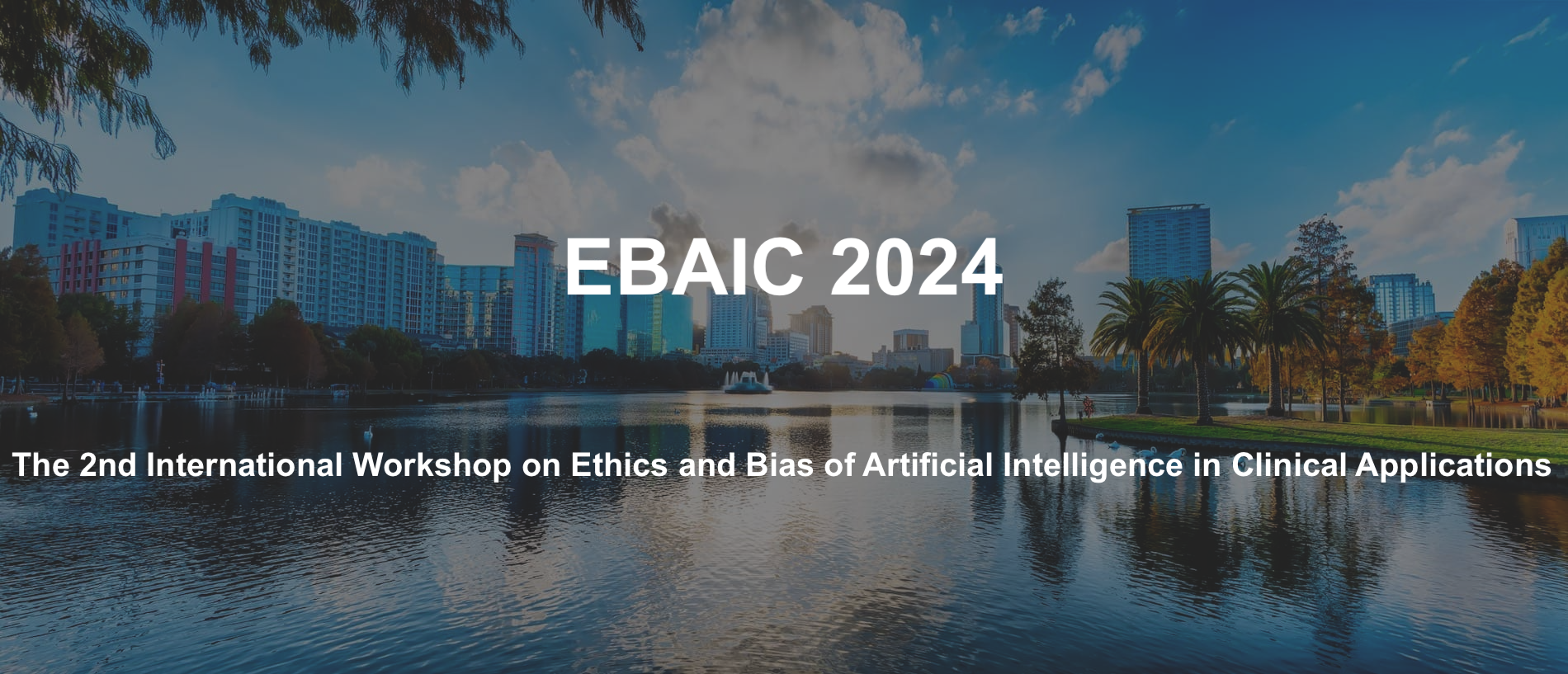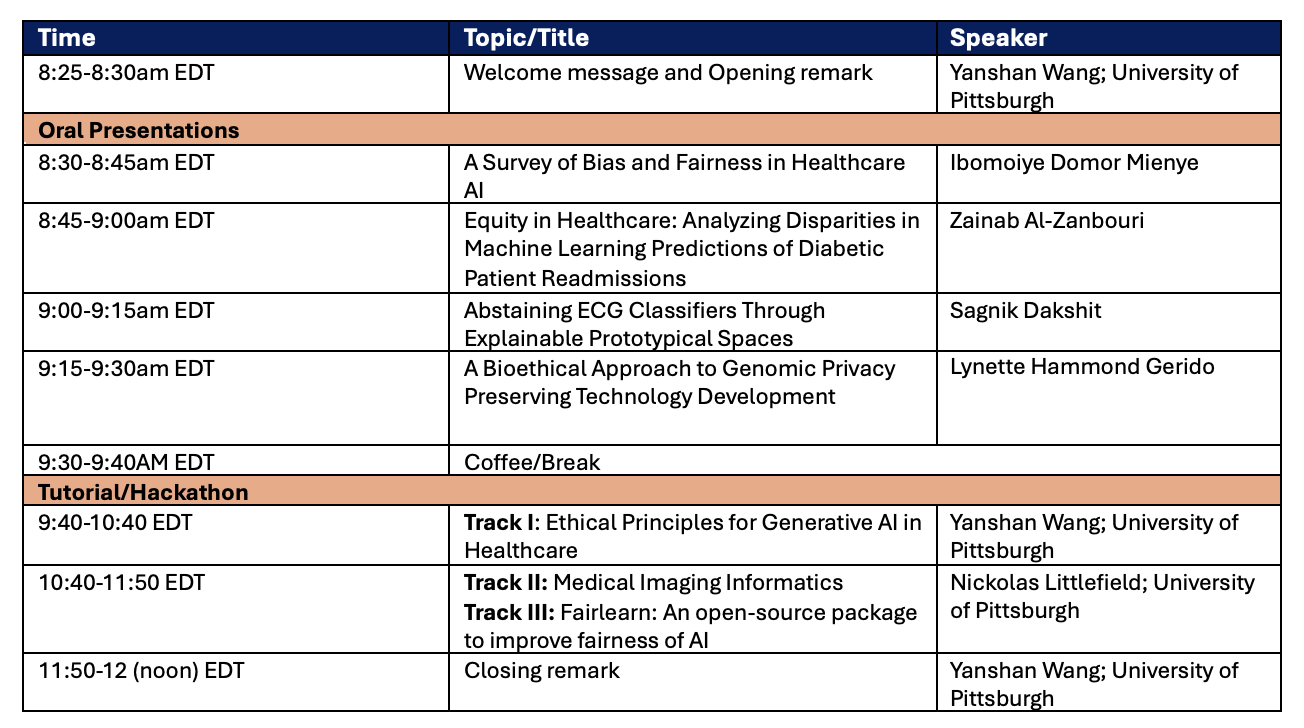

In conjunction with IEEE ICHI 2024
June 3rd, 2024, Orlando, Florida
As artificial intelligence (AI) continues to transform healthcare, there is a pressing need to address any ethical challenges and biases inherent in data-driven AI models, thus we can advance safe, trustworthy, and responsible AI in clinical settings. The consequences of biased AI can range from misdiagnoses to unequal access to medical resources and healthcare disparities. With the healthcare community relying more on shared AI-driven decision-making, it's crucial to focus on the ethics of these advanced technologies. Healthcare scientists, academic institutes, industry experts, and policymakers need to actively work together to build solid platforms to tackle potential biases in AI-powered healthcare. This ensures that AI in healthcare becomes reliable, fostering a future where it enhances the well-being of diverse patient populations.
We welcome original research on the ethics and bias of AI in clinical applications, covering various AI techniques such as natural language processing, medical imaging, deep learning, predictive and/or descriptive modeling, Internet of Things, mobile health, data quality, and more. Clinical applications can range from decision support systems and translational research to consumer applications and robotics. Additional topics of interest include AI for health equity, transparency in AI techniques, data and algorithmic bias, fairness metrics, and practical solutions to mitigate bias in clinical applications. We also invite limited position papers, particularly from communities historically affected by AI bias or health disparities, as well as institutions actively addressing bias impact in clinical settings.
The purpose of the tutorial/hackathon session is to raise awareness of the problem of bias in clinical data and AI algorithms with the ultimate goal of creating innovative approaches that can help reduce or eliminate bias in clinical data and AI. Participants may be students, researchers, and data scientists who are interested in applying AI to clinical applications. Complete this form (link coming soon...) to register the Tutorial/Hackathon Session.






University of Pittsburgh, Pittsburgh, PA, USA

University of Pittsburgh, Pittsburgh, PA, USA

Carnegie Mellon University, Pittsburgh, PA, USA

University of Wisconsin-Madison, Madison, WI, USA

University of Michigan, Ann Arbor, MI, USA

University of Wisconsin-Milwaukee, Milwaukee, WI, USA

University of West Virginia, Morgantown, WV, USA

Pace University, New York, NY, USA

Koc University, Istanbul, Turkey

University of Georgia, Athens, GA, USA

Malmö University, Malmö, Sweden